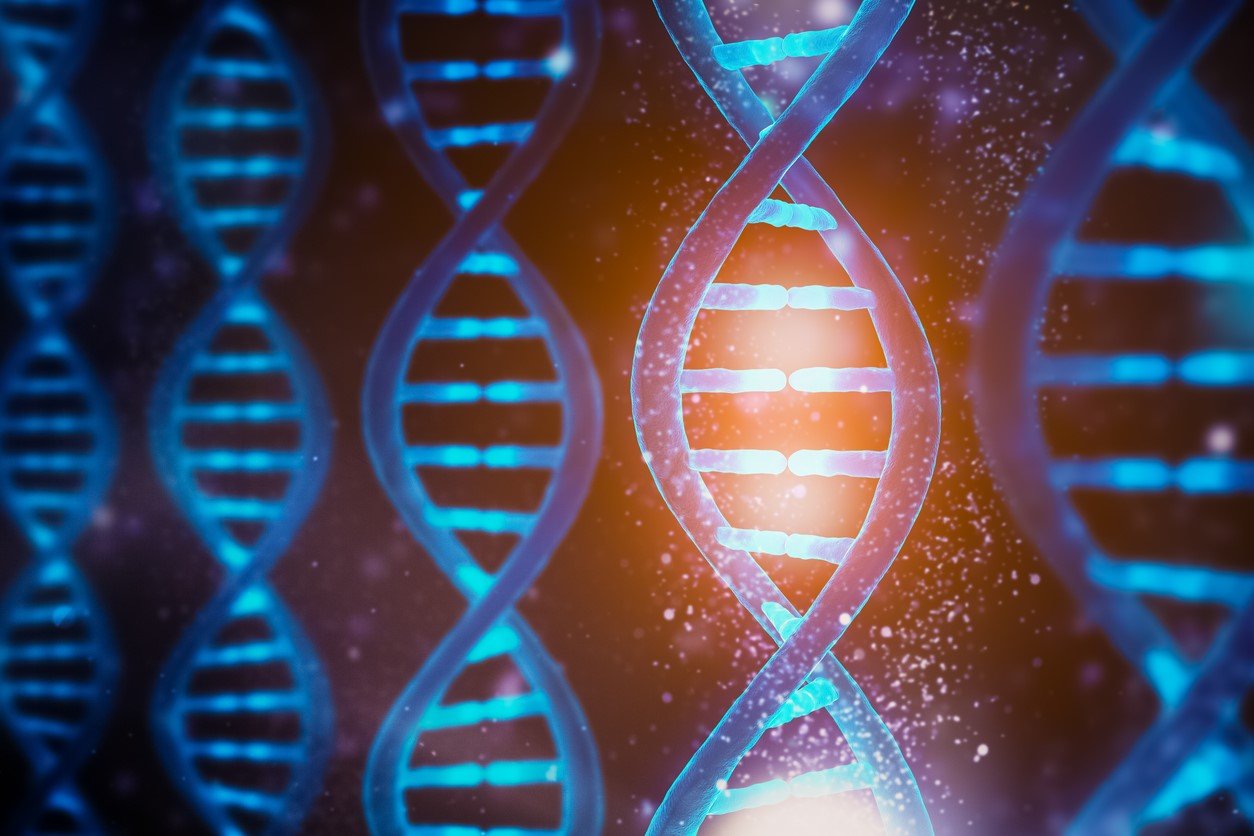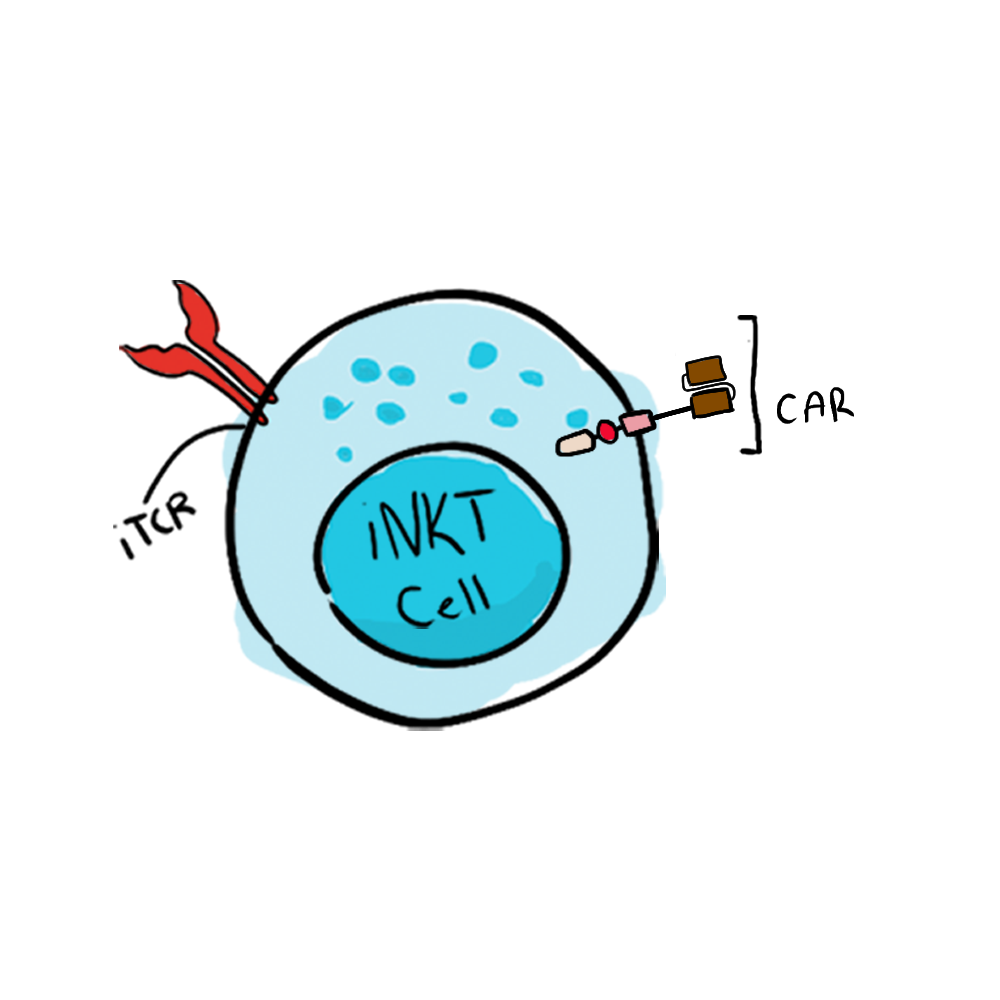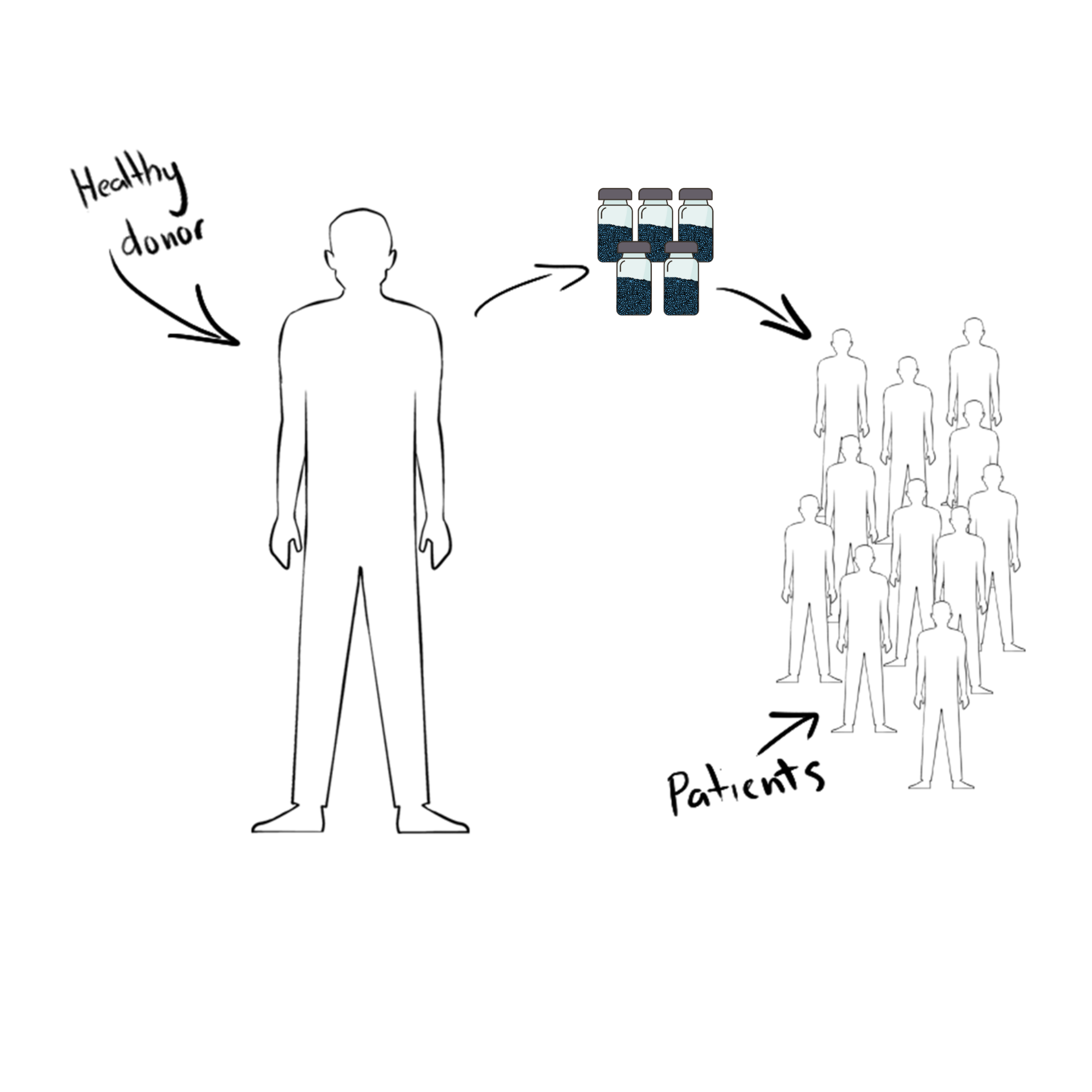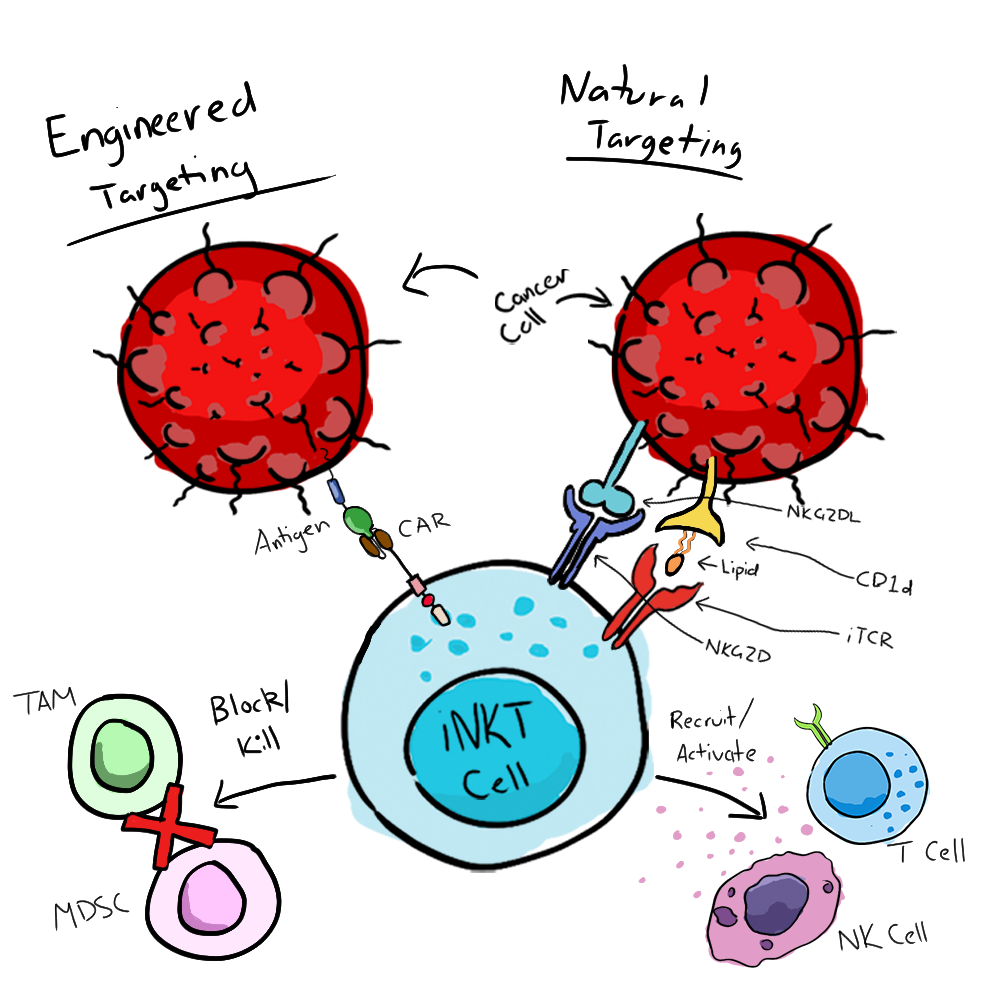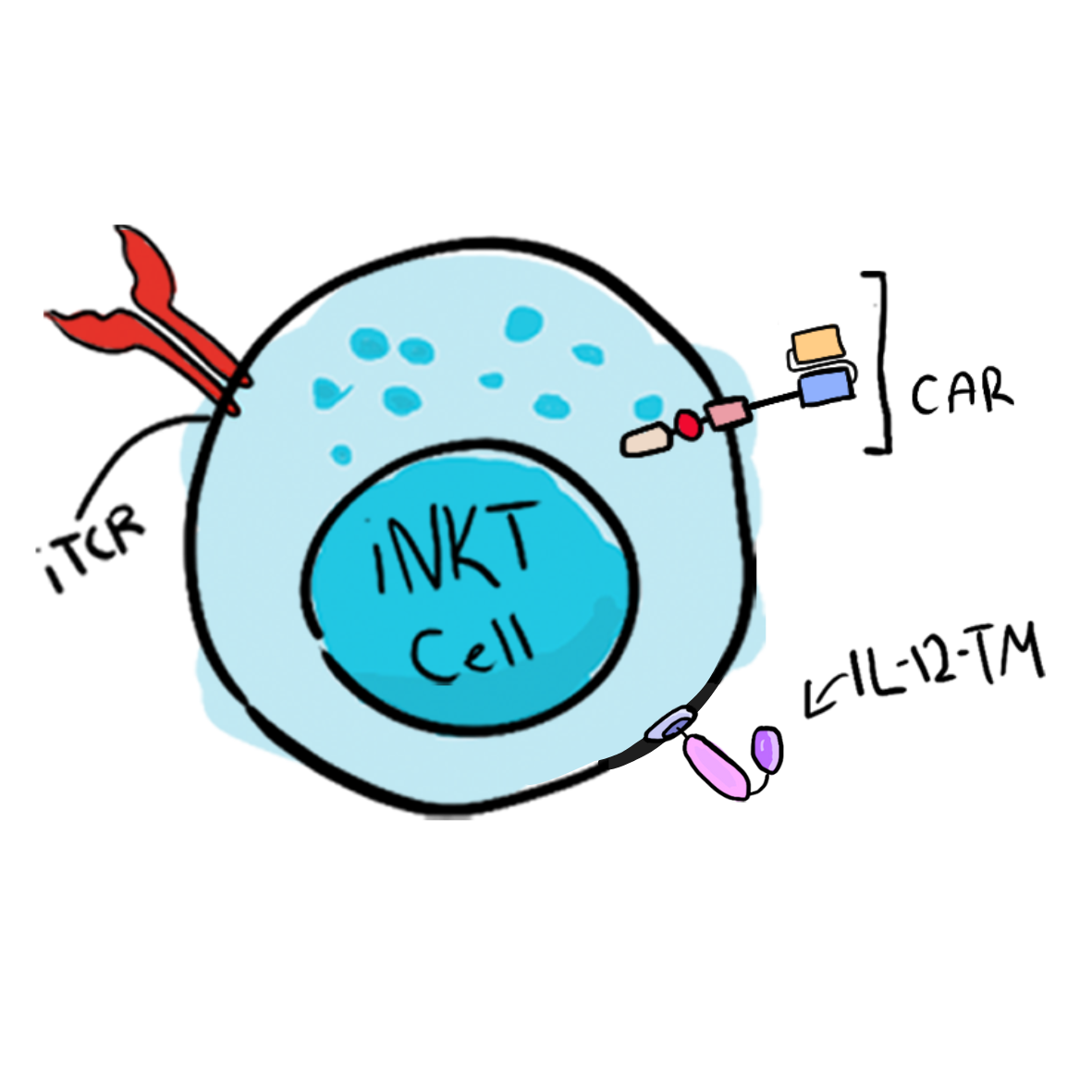
Technology
iNKT cell therapy overview
Our explanatory whiteboard video explains how iNKT cells, together with CARs, fight cancer cells.
The video provides a simple, easy to understand overview of how Arovella is developing cell therapies for cancer treatment.
After watching the video, you will be able to explain the cell therapy revolution and grasp its future potential in the fight against cancer.
iNKT cell therapy background
Cell therapies look beyond traditional treatments such as radiotherapy, chemotherapy and surgery and have changed the way we look at cancer treatment. Cell therapies make use of human immune cells, whose primary role is to find and eliminate foreign objects that do not belong.
Why are iNKT cells so effective?
iNKT cells are a specific subset of immune cells that, once activated, have potent cancer killing abilities and rapidly release cancer cell killing molecules. iNKT cells are equipped to undertake cancer cell destruction through their invariant T Cell Receptor (iTCR) that recognises lipid bound CD1d found on the surface of a number of cancer cell types. When engineered with a CAR, iNKT cells have multiple ways to recognise and kill cancer cells. iNKT cells can also kill tumour cells via the NKG2D pathway which is an “NK cell-like” killing mechanism. In preclinical studies, these multiple targets and killing mechanisms results in better activity over conventional T cell therapies. iNKT cells can also block and kill pro tumour cells and secrete cytokines to stimulate other immune cells such as T and NK cells.
Engineering CAR-iNKT cells to tackle cancer
Using our proprietary and patented manufacturing process, iNKT cells are genetically reprogrammed to express a chimeric antigen receptor (CAR). The CAR is specifically designed to recognise an antigen or marker on the surface of the cancer cells - for ALA-101, this marker is CD19. For ALA-105, this target is Claudin 18.2. By engineering iNKT cells to express a CAR, they can recognise and eliminate cancer cells with these markers on their surface.
CAR-iNKT cells can be used off-the-shelf
Arovella’s therapy is being developed as an allogeneic product and will be able to be used “off-the-shelf”, which means we take the starting iNKT cells from a healthy donor and use the material to make multiple doses to treat multiple patients. This contrasts with current approved cell therapies which must be produced from the immune cells of the patient and need to be made bespoke for every individual.
Solid Tumour Strategies
Why might iNKT cells have benefits targeting solid tumours?
Despite the impressive advances that have been made using cell therapies to tackle blood cancers, similar levels of efficacy in solid tumours have lagged. Solid tumours pose additional challenges such as the hostile tumour microenvironment and tumour heterogeneity, which creates the need to find suitable tumour associated antigens (TAAs). CAR-iNKT cells have several properties that we believe can assist in the fight against solid tumours.
They enable engineered targeting via the CAR, allowing tumour-specific recognition based on cancer type.
They provide natural targeting via the NKG2D pathway and lipid-bound CD1d.
They block and kill pro-tumour immune cells such as tumour associated macrophages (TAMs) and myeloid derived suppressor cells (MDSCs).
They release cytokines that cause activation of cytotoxic T and NK cells to start eliminating tumour cells and promote the cross-priming of T cells.
Claudin 18.2 is a novel TAA that is expressed in a range of cancers
A key challenge for the treatment of solid tumours is the identification of suitable targets that are expressed in cancer cells but not healthy tissues. Claudin 18.2 is a clinically validated target that is expressed in several solid tumour types, including gastric cancer, gastroesophageal junction cancer, esophageal cancer, and pancreatic cancer. It is hidden in healthy tissues and exposed to the cancer cell surface upon malignant transformation. Arovella has licensed a novel monoclonal antibody sequence from Sparx Group to develop CAR-iNKT cells targeting CLDN18.2.
Find out more about ALA-105: CLDN18.2-targeting CAR-iNKT cells.
Armouring CAR-iNKT cells with IL-12-TM
Armouring CAR-iNKT cells is one of Arovella’s strategies to further enhance and differentiate its platform to tackle solid tumours.
When IL-12-TM is added to CAR-iNKT cells, it promotes increased proliferation and survival of the CAR-iNKT cells. This means that CAR-iNKT cells that produce the cytokine technology proliferate more, leading to higher numbers of CAR-iNKT cells. The major benefit of increased iNKT cell numbers is that it results in a superior antitumour response in solid tumour models.
IL-12-TM is a modified version of interleukin (IL)-12, which has been modified to include a ‘membrane anchor’, which keeps the IL-12 attached to the CAR-iNKT cell and prevents it from circulating freely in the patient’s bloodstream. By linking it to the surface of iNKT cells, it can enhance CAR-iNKT cells without being released into the blood stream, making it safer.
For more in-depth information about IL-12-TM, see Nature Communications article IL-12 reprograms CAR-expressing natural killer T cells to long-lived Th1-polarized cells with potent antitumor activity.
Discover how our IL-12-TM cytokine technology works in our new IL-12-TM explainer whiteboard video.
